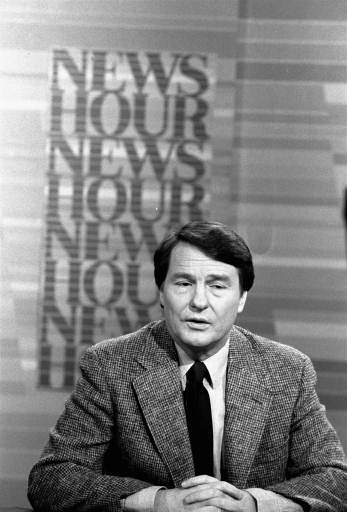Editorializing by public broadcasting stations was the issue facing the Supreme Court in Federal Communications Commission v. League of Women Voters of California, 468 U.S. 364 (1984). The Court ruled that a section of the Public Broadcasting Act of 1967 violated the First Amendment. The section said that noncommercial educational broadcasting stations receiving grants from the Corporation for Public Broadcasting could not editorialize.
Noncommercial radio and television stations could not ‘editorialize’
Congress enacted the 1967 Public Broadcasting Act to encourage the development of commercial-free radio and television programming. Part of the act created the Corporation for Public Broadcasting, a nonprofit entity entrusted with distributing federal money to noncommercial stations.
Section 399 of the act barred any station that received money under it from engaging in “editorializing.” Pacifica Corporation, which owned several noncommercial stations, along with a listener and the League of Women Voters of California, challenged the restriction as a violation of the First Amendment.
Court said rule against editorializing violated the First Amendment
A district court ruled in favor of the First Amendment challenge, and the Supreme Court agreed. Writing for the Court in a 5-4 decision, Justice William J. Brennan Jr. ruled that Section 399 was an attempt to directly regulate the content of speech that was at the heart of the First Amendment. Moreover, he argued that efforts to suppress editorial speech deprived listeners of commentary about matters of public importance.
The government had contended that Section 399 was needed to prevent the government from interfering with speech and to prevent the public from becoming confused and assuming that the editorializing was the government speaking. The majority also rejected these arguments, asserting that the law was over- and underinclusive in that it suppressed speech from private groups and on topics that had nothing to do with the government.
Finally, the Court rejected the claim that Section 399 was constitutional because it was a valid use of the government’s spending power to decide how to disburse its money.
Government cannot use public funds to supress or encourage free speech rights
Overall, Federal Communications Commission v. League of Women Voters of California affirmed that the government may not use public funds to suppress or encourage the free-speech rights of others.
Although Legal Services Corp. v. Velazquez (2001) somewhat supported this principle, decisions in Rust v. Sullivan (1991) and National Endowment for the Arts v. Finley (1998) allowed the government to appropriate money in order to limit the specific viewpoints for which it was paying.
This article was originally published in 2009. David Schultz is a professor in the Hamline University Departments of Political Science and Legal Studies, and a visiting professor of law at the University of Minnesota. He is a three-time Fulbright scholar and author/editor of more than 35 books and 200 articles, including several encyclopedias on the U.S. Constitution, the Supreme Court, and money, politics, and the First Amendment.

